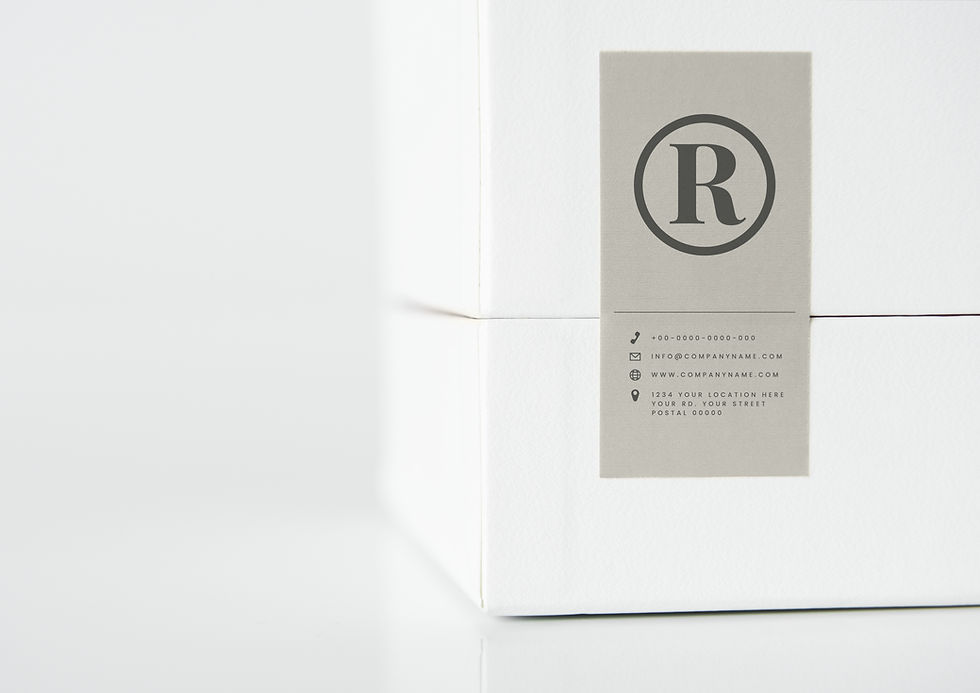When Should I Trademark my Brand?
- Monica

- Mar 9, 2021
- 4 min read
Quick Answer - yesterday, sometime today, or right now.
When considering federal trademark registration, typically the sooner you apply for registration, the better. In order to be eligible to apply for federal trademark registration through the United States Patent and Trademark Office (USPTO), you must either be currently using the mark (business name, logo, slogan, social media name) in some form of interstate commerce, or you must have the bona fide intent to do so. The ability to apply for registration prior to the actual use of the mark can be vital in the successful creation of a unique, identifiable brand.

However, prior to applying for registration, performing a thorough clearance search is a step that should not be overlooked. It is important to know whether or not someone else is using the mark, or a confusingly similar mark, to ensure that you do not inadvertently infringe upon another’s trademark rights. When running a clearance search you must identify both federally registered marks and common law marks, as both have the potential to deliver a whole lot of problems to your door.
Currently Using the Mark in Interstate Commerce
If you have been using your business name (logo or slogan) in interstate commerce for several years without federal registration, it isn’t too late to apply. This type of application would be classified as a Section 1(a) In Use Application, and you would then need to provide proper and acceptable evidence of such use. One advantage to using the mark in commerce prior to trademark registration is that you avoid an additional step that the “intent to use” application requires. However, one pitfall to using the mark prior to applying for a federal trademark is putting your idea out into the world without the ultimate form of property protection. This opens the possibility of having a copycat file an application for the same or very similar mark. Luckily there are common law arguments that can be used to block the registration of another mark, but your life will be easier if this can be avoided.
Intending to Use the Mark in Interstate Commerce
If you have yet to begin using the proposed mark in commerce, either because you are protecting it from would-be copycats, or because you are not yet ready to commence business, you can still apply for federal protection. The USPTO provides the ability to preserve a name, slogan or logo through the filing of a Section 1(b) Application. Your intent to use the mark must be more than dreaming up a really catchy slogan that you think would be fun for a business someday. In fact, the applicant or the attorney prosecuting the trademark will be required to sign an affidavit swearing that the applicant’s intent to use the trademark is bona fide.
The intent to use application will run into filings in addition to the application, so applicants should know that the timeline for registration may be extended. How long this extension is depends on how long it takes to provide sufficient evidence of interstate commerce. Once your application receives a successful notice of allowance, the clock starts and you have six months to file a statement of use containing evidence of the mark’s use in interstate commerce. However, if interstate commerce has not yet occurred, you can file a request for a 6-month extension in lieu of the statement of use. This request can be filed every six months for a total of five extensions of time, but the statement of use must be filed within 36 months of receiving the notice of allowance. This is where the application can incur added costs, as each 6-month request will cost $125 per international classification applied for. If the mark is ultimately not being sold or provided in interstate commerce within that time period, the application will be cancelled.
If you’re already in business and are just thinking about applying for a trademark, you are not too late. In fact, your use of the mark associated with your business has established strong common law rights, and you can use that to your advantage if needed.
If you are just creating your business plan, you are not too early. You will have flexibility in the event that your chosen name is already registered or in strong common law use.
#createyourTM #TMTuesday #trademarktuesday #trademark #intellectualproperty #trademarklawyer #branding #themoreyouknow #ontheblog #design #logo #brand
Monica Ugliuzza, Esq.

Monica is an attorney with a practice dedicated exclusively to trademark law. Monica is the founder and owner of Creative Law Studio, a law firm with creative minds to best serve creative clientele. Creative Law Studio is able to serve clients with a wide-range of budgets, due to the firm's boutique, web-based presence. Creative Law Studio is committed to providing excellent counseling to our clients and we get just as excited about your trademark as you do.
Disclaimer: This blog/website is intended to be published for educational and entertainment purposes and to give readers a general idea of the law of trademark. This blog/website is not intended to give any specific legal advice or to target a specific person. Readership of this blog cannot create an attorney-client relationship between you and the publisher. This blog should never be used to substitute the seeking out of personal, legal advice. The discussion of an existing or potential trademark shall not be taken as an endorsement by creative law studio, nor shall the same be taken as an endorsement of creative law studio. The discussion of specific trademarks does not mean that creative law studio is a record attorney for such trademarks.






Comments